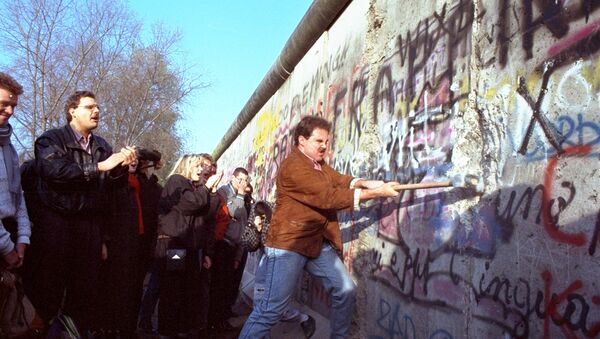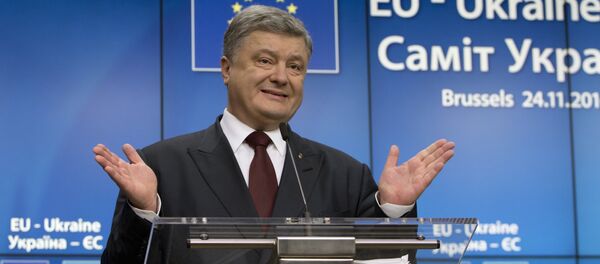On Tuesday, Ukrainian President Petro Poroshenko approved the decision of the National Security and Defense Council (NSDC) to expand the list of sanctioned Russian individuals and legal entities. In particular, Ukraine has imposed sanctions on a number of Russian media, popular social networks like VKontakte and Odnoklassniki, Yandex, and Mail.ru services.
"At the moment the situation between Ukraine and Russia is the same as between East and West Germany. I mean a large number of family links among people who live in Ukraine and in Russia… And the issue of accessibility of Russian-language social networks in Ukraine is not simply the issue of the freedom of media. The issue is whether Europe wants personal contacts to be on the same level as at the time of East and West Germany or… for countries to be able to communicate on personal level," Finckh-Krämer said.
Christoph Bergner, a member of the Christian Democratic Union of Germany (CDU) stressed the importance of "restoration" in Ukraine and said that Germany should be ready to help stabilize the country, strengthen its institutions.
Andrej Hunko, a member of The Left party, said that the most important lesson of the World War II would be doing everything possible to promote the policy of peace toward Russia and Ukraine.
Kiev launched a special military operation in Ukraine’s southeast in April 2014, after the self-proclaimed Donetsk People’s Republic (DPR) and the Luhansk People’s Republic (LPR) refused to recognize the new government in Kiev. In February 2015, a peace deal was signed between the conflicting sides in Minsk, brokered by the leaders of Russia, France, Germany and Ukraine — the so-called Normandy Format.




